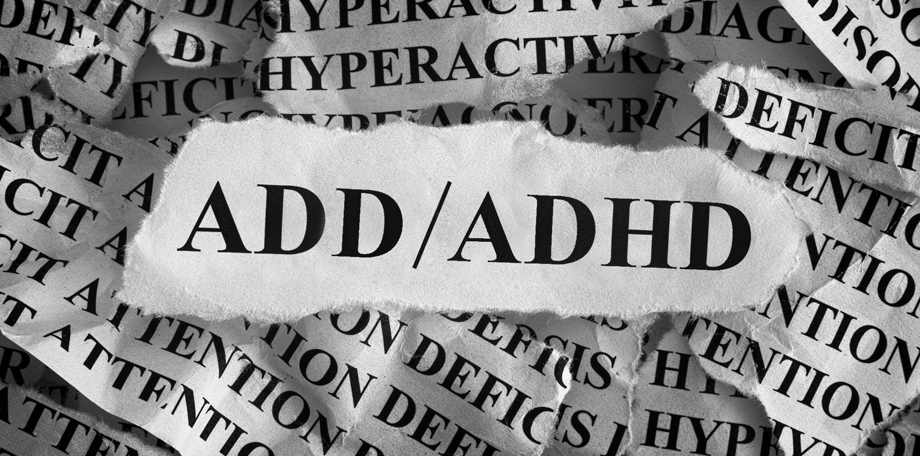You’re late to work — again. You need to turn in that report to management by Friday, but every time you start to work on it, a new email pops into your inbox, rerouting your attention. And when your boss asks you for a progress update at the team meeting, you stumble to respond because you’re thinking about your weekend plans, what to make for dinner, or if you remembered to lock the door this morning.
Sound familiar? Many of our career coaching clients express concern over being able to focus at work. If you often feel like Gumby, being pulled in several directions, disruption may be a way of life. If you have ADD/ADHD, the challenge is magnified.
Do I Have Adult ADD?
What differentiates adult attention deficit disorder (ADD) from everyday distraction is its chronic and pervasive nature. “While it’s not unusual for most people to occasionally leave their wallet at home, run late for a meeting or struggle to complete a project by its deadline, these behaviors are prevalent among adults with ADD/ADHD,” according to Nancy Christian, M.Ed., owner of Strategies to Excel.
“ADD often becomes apparent when these types of behaviors are habitual and occur in more than one area of their lives — home, work, school and even social interactions.” She emphasizes that it has nothing to do with intellect. “It’s not that people with ADD/ADHD are any less capable; rather, they find it difficult to sustain effort and attention.”
Symptoms of ADD in adults sometimes go undetected because people with ADD/ADHD are able to hyper-focus when they’re really interested in something. It’s when their interest wanes that their attention tends to wander. They also often struggle with organization and executive functioning skills, which can lead to overwhelm. In the workplace, where productivity is critical, adult ADD/ADHD can create a perfect storm.
Planning: The #1 Strategy to Manage Your ADD at Work
People with ADD/ADHD often miscalculate the amount needed to accomplish specific tasks. And because they frequently procrastinate, they risk running late or missing deadlines. Nancy recommends an exercise she calls “Capture,” which involves listing every task, event or situation that comes on to their radar in a given week or month. Then, she suggests breaking down the list by day, creating an updated To-Do list every morning. The list should include things large and small, allotting time to attend meetings, run errands, work on specific projects, make phone calls, send emails and even visit social media websites.
Of course you can adjust your daily agenda, adding new requests and commitments as they come into play. “We all have ‘pop-ups’ in our lives, but having a tangible list helps us stay the course,” she explains. “It also reflects a commitment of your time and attention, which helps resist temptation to engage in lower-priority activities.”
Routines can help you develop habits that can increase your efficiency and productivity. In addition to aiding in time management, routines help reduce your vulnerability to distractions. Other strategies to manage your ADD at work include:
Tentacle your tasks — As Nancy points out, adults with ADD often oversimplify items on their To-Do list. In order to get a realistic view of how long it will take you to do something — and when it’s best to schedule it — break it into pieces and set priorities.
“Prepare presentation for meeting” as a single item on your To-Do list can be deceiving, and you run the risk of underestimating the amount of time it takes to complete each sub-task: gather information from other team members, conduct competitive research, compile statistics, write the copy, create the graphics, get your boss’s approval, etc. By scheduling each ‘tentacle,’ you reduce your chances of having to burn the midnight oil to complete the project on time.
Work with a “closer”— While the term closer is often used in sales, it actually can be an effective strategy in any workplace setting, particularly for adults with ADD. Nancy says, “If you’re juggling a lot of different projects, it might help to have someone on your team check in with you on at mutually agreed-upon intervals (daily, weekly, bi-weekly) to see how you’re doing on a project and/or to step in and finish it once you’ve taken it 95 percent of the way to completion.”
Nurture your self-confidence — “Many adults who have ADD/ADHD also struggle with self-esteem,” Nancy notes. “They can be highly critical of themselves, and this self-doubt often impedes their success.”
“Self-confidence is a perception. With the potential to impact your thoughts, moods and behaviors in profound ways, it can be a powerful driver of success in all areas of your life,” according to Jody Michael, CEO and founder of Jody Michael Associates. In a Catalyst article entitled Building Self-Confidence: 10 Life-Changing Strategies, Jody provides tangible steps you can take to boost your self-esteem — and to overcome barriers that often get in the way.
Make wise career choices — Set yourself up for workplace success by making prudent choices when it comes to your career. A career coach can help you explore your options and determine your best career fit based on your innate talents, abilities and interests. Would you thrive in a large corporation, or at a smaller start-up? Is entrepreneurship or a freelance career right for you?
While ADD/ADHD shouldn’t be considered a limiting factor, you could limit your potential if you fail to keep it in mind when making choices related to your career path. Managing your ADD at work is much easier when you are in a career and workplace environment most conducive to your success.




